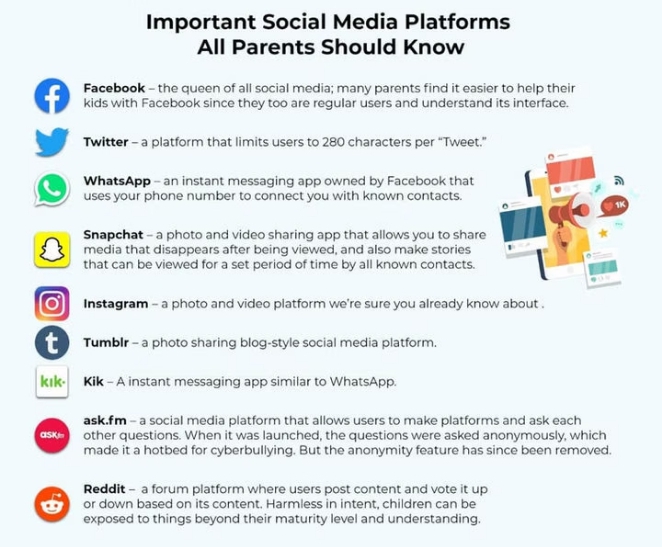Keeping children off the internet has become an almost unrealistic option in our world today.
Since its discovery, it has been viewed as an entity capable of answering various questions; While offering boundless communication networks, and endless opportunities.
The internet also provides a scope for access to various vices and dangers. Providing room for inappropriate content, cyber bullying, and cyber predators.
One of the biggest challenges for parents these days is ensuring that their children stay safe online. With so many kids now having their own computers and smartphones, it is becoming increasingly difficult to know what content they are consuming and who they relate with on the web.
Research shows that while nine out of 10 kids have access to the Internet, there is still a very low level of digital literacy amongst them and a lack of regulatory protections nationwide.
So, at the end of the day, whether we choose to go down the path of parental control or adopt digital education, it is really all up to protecting our kids.
Tracing our Steps
A viral video depicting inappropriate actions among school children, who went on a trip to Dubai about a week ago sparked public outrage and threw the entire country into a bleak mood.
Several netizens who watched the video, blamed the 10-year-old (who was reportedly raped by another student)’s mother and the parents of other students for failing to fulfill their parental duties of protecting their children by keeping them away from web vices along with instilling godly principles.
With the development surrounding the case and investigations underway, this account has left many Nigerians wondering what most children are doing in the absence of their parents.
Despite the growing momentum in the field of digital literacy, little attention is being paid in Nigeria to the issue of children’s digital safety.
With ignorance and willful neglect by many adults regarding viruses, online privacy, phishing, social media etiquette and other online safety and security issues, it has become imperative to ensure that children and adults in society are educated to understand the risks involved in promoting careless identities on the web.
Virtual and Reality: Understanding the Difference
One of the biggest challenges for many parents is getting kids to understand the differences between the real world and the virtual world.
It also doesn’t help that most social media platforms only require you to be less than 16 to join, which means we’re fighting an uphill battle to keep kids off these platforms.
Thus, these virtual connections make it seem like social media is a playground for all kinds of unsavory behavior. So a lot of measures to take for online safety could involve common sense, but in addition to that, there are settings we can adopt to limit the content and accessibility of apps available on children’s devices.
Making the real world fun also helps them a lot. Children need to know how to enjoy life outside of their screens. It’s important to involve them in physical connections and things that they are most likely to find enjoyable.

Giving them time and not neglecting them can also help reduce the need to live their lives online.
How can Parents Tackle the Risks?
Many children may seem comfortable with technology and the internet, but we must not forget that they are still learning and may not be ready to discover the pitfalls associated with social media.
Here are some steps that I believe parents can take to protect their children:
1)It Begins with the Older Population
The first step in keeping children safe online is to learn about the environment in which they are operating in.
Parents can directly ask their children what platforms they use, or what they would like to use. With so many different platforms out there, and new ones emerging all the time, it’s better to go straight to the source.

Parents can also glean wisdom from the collection of open source digital materials dealing with children’s online safety. This way, they can learn about safety issues, stay up to date with them, and know how they might affect their children.
Also, learn their dialect when it comes to communicating online. Make sure you know what they are talking about. Remember that a child’s lifestyle is shaped by its roots – the home!
2) Discussing Online Safety with Kids while they are still Very Young
I think it is important to start the process of discussing online safety with children at an early age.
Connect with them by having conversations about how to avoid strangers, how to prevent revealing too much about themselves, and general online safety. Teach them about the red flags. Encourage them to come to you for guidance when questionable content or situations arise.
Let them know the importance of privacy at all costs. They should know their networks – that is, they should never approve friend requests or add people they don’t know in real life. Make sure they know to never meet anyone in person that they only met online.
Also, encourage them to let you know if they receive any threatening or intimidating messages online. Teach them to trust you.
3) Set Standard Rules for the Entire Family
Kids these days are digital citizens. They’ve grown up with the internet and have no idea what life would be like without it. A lot of children are very active on social media, which can make it hard for parents to monitor their online activity.
Setting rules can help keep them in check and may help relieve some of the stress that comes with parenting and web monitoring.
Also, getting everyone involved in the house to participate in the rules set in place can also be crucial because it shows kids that they are not the only ones subject to important regulations.
4) Pushing Government Interventions Forward
Problems involving online threats to children are not unique to just Nigerians. It happens in countries all over the world.
Many of them have, however, successfully established frameworks to protect children in their jurisdiction who connect to the Internet. This is yet to be rooted in Nigeria, because government response to internet laws and digital literacy has been significantly low. With privacy being a specific need, the government can set standards in place to protect Nigerian kids from the ways of the internet while at the same time not stepping on their rights.
The only specific law in Nigeria dealing with cybercrime was passed into law in 2015 and has only been domesticated in 24 of the country’s 36 states.
So paying attention to the issue of digital literacy and government measures may provide an opportunity for effective digital safety.
5) Be Vigilant and Monitor what You Can
While keeping an eye on children in the real world is key, it is also smart to be aware of their digital lives as well.
Children, often in an effort to exercise their self-identity, like to rebel against any rules imposed on them, even if they are made with their best interests in mind.
Parents must participate to ensure that the contents viewed and the sites navigated are safe and do no harm to their children. Kids need to know that there are consequences, especially when it comes to neglect on social media.
Parental control apps like Qustodio can also be used which allows adults to set up content filters, block certain apps and sites, monitor SMS and social media connections, and set time limits for device usage. It is also advised not to violate the privacy of children to take this action, so as not to lose your trust and accountability in them.

































